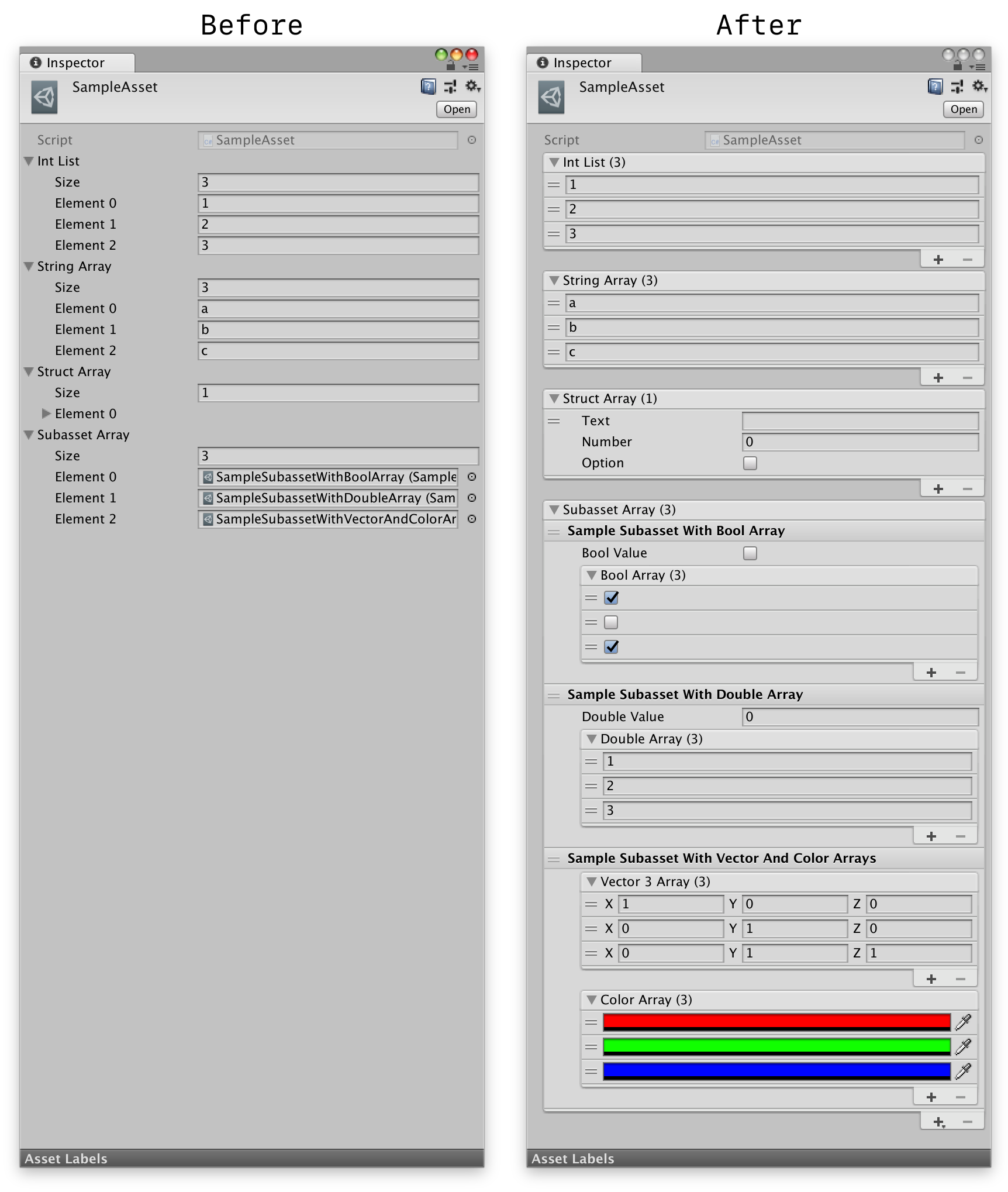
As such, serialization in Unity behaves differently to serialization in other programming environments. This has a significant impact on performance. Serializers in Unity run in a real-time game environment. This means that: While the values of a field in the Inspector window represent script properties, changes to values in the Inspector window do not call any property getters and setters in your script Serialization rules
UNITY ARRAY VS ARRAYLIST WINDOWS
If you use properties in your script, any of the property getters and setters are never called when you view or change values in the Inspector windows as Unity serializes the Inspector window fields directly.

The Inspector window does not communicate with the Unity Scripting API when it displays the values of a field.

More info See in Glossary’s component field in the Inspector window, Unity serializes this data and then displays it in the Inspector window. A GameObject’s functionality is defined by the Components attached to it.

When you view or change the value of a GameObject The fundamental object in Unity scenes, which can represent characters, props, scenery, cameras, waypoints, and more. Two things to be particularly aware of with serialization are the Inspector window, and hot reloading. Many of the features in the Unity Editor build on top of the core serialization system. This includes data saved in your own scripting API objects such as MonoBehaviour components and ScriptableObjects. More info See in Glossary, and AssetBundles to and from your computer’s hard drive. You can also create some asset types in Unity, such as an Animator Controller, an Audio Mixer or a Render Texture. An asset may come from a file created outside of Unity, such as a 3D Model, an audio file or an image. More info See in Glossary, Assets Any media or data that can be used in your game or project. In each Scene, you place your environments, obstacles, and decorations, essentially designing and building your game in pieces. Think of each unique Scene file as a unique level. Unity uses serialization to load and save Scenes A Scene contains the environments and menus of your game. All data that is not serializable is lost after a hot reload. It first stores all serializable variables in all loaded scripts and, after loading the scripts, it restores them. When you change and save a script, Unity hot reloads all the currently loaded script data. You do not have to restart your application or the Editor for changes to take effect. More info See in Glossary while the Editor is open and applying the script behaviors immediately.
UNITY ARRAY VS ARRAYLIST CODE
Hot reloading is the process of creating or editing scripts A piece of code that allows you to create your own Components, trigger game events, modify Component properties over time and respond to user input in any way you like. See also documentation on: Serialization Errors, Custom Serialization, and Built-in Serialization.
UNITY ARRAY VS ARRAYLIST HOW TO
This page outlines serialization in Unity and how to optimize your Project for it. How you organize data in your Unity Project affects how Unity serializes that data and can have a significant impact on the performance of your Project. See documentation on Built-in serialization use for background details on all of these. The prefab acts as a template from which you can create new object instances in the scene.

More info See in Glossary window, instantiation, and Prefabs An asset type that allows you to store a GameObject complete with components and properties. Some of Unity’s built-in features use serialization features such as saving and loading, the Inspector A Unity window that displays information about the currently selected GameObject, asset or project settings, allowing you to inspect and edit the values. Serialization is the automatic process of transforming data structures or object states into a format that Unity can store and reconstruct later.


 0 kommentar(er)
0 kommentar(er)
